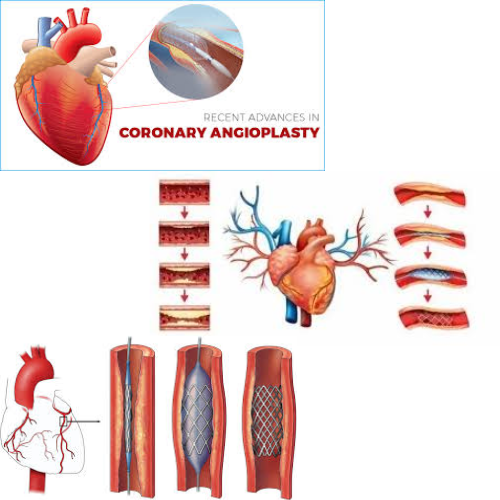Coronary Angioplasty!
Coronary angioplasty, also known as percutaneous transluminal coronary angioplasty (PTCA), is a minimally invasive procedure to open blocked or narrowed coronary arteries.
Purpose:
- Restore blood flow to the heart.
- Relieve chest pain (angina).
- Improve heart function.
- Reduce risk of heart attack.
Procedure:
- Catheter insertion (arm/leg artery).
- Guided to blocked artery via X-ray.
- Balloon inflation to expand artery.
- Optional: Stent placement to keep artery open.
Types:
- Balloon angioplasty
- Stent placement (bare-metal or drug-eluting)
- Cutting balloon angioplasty
- Laser angioplasty
Preparation:
- Fasting (6-8 hours)
- Stop certain medications
- Local anesthesia
- IV access
Risks:
- Bleeding/hematoma
- Infection
- Allergic reaction (contrast dye)
- Kidney damage
- Stroke/heart attack (rare)
- Restenosis (artery re-narrowing)
Recovery:
- Monitor for complications
- Bed rest (2-6 hours)
- Pain management
- Follow-up appointments
Benefits With Our Service
Success Rate:
- High success rate (90-95%).
- Improved symptoms and quality of life.
Post-Angioplasty Care:
- Medications (antiplatelet, statins).
- Lifestyle changes (diet, exercise).
- Regular follow-ups.
- Monitoring for restenosis.




